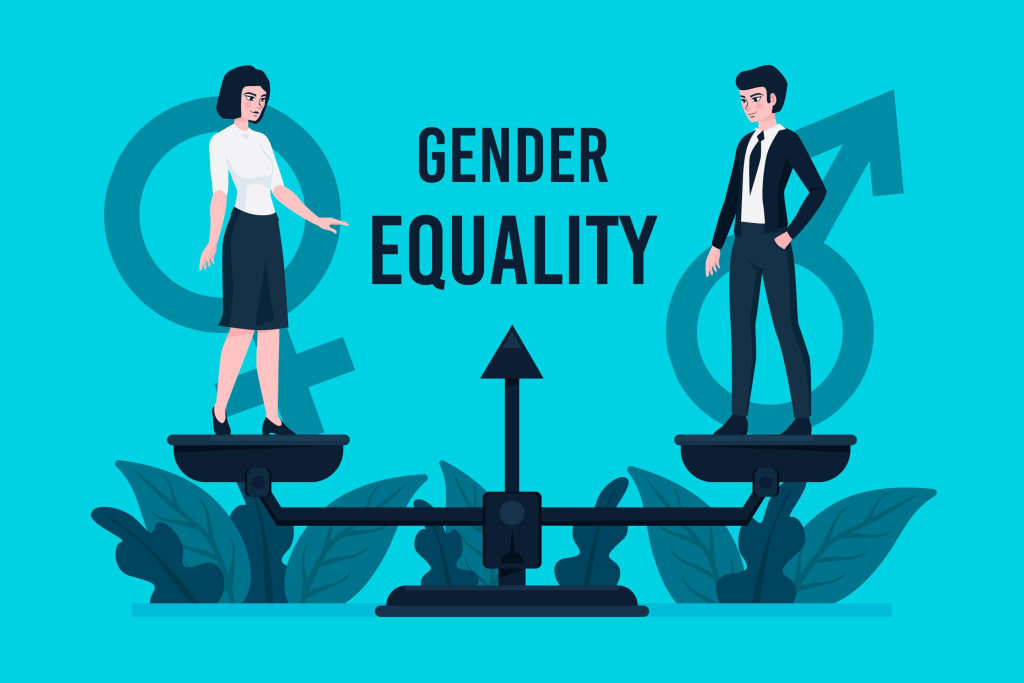Women's rights and gender equality
Empowering Women and Achieving Gender Equality

Women's rights and gender equality are essential components of a just and equitable society. Despite significant progress in recent decades, women and girls continue to face numerous challenges and obstacles in their quest for equal treatment and opportunities.
One of the key issues facing women today is the persistence of gender-based violence, which takes many forms, including domestic violence, sexual assault, and human trafficking. Such violence not only violates the basic human rights of women, but it also undermines their ability to fully participate in society and reach their full potential. It is therefore crucial that governments and other actors take concrete steps to address this issue, through measures such as improved laws, better enforcement of existing laws, and increased resources for support services.
Another important challenge facing women and girls is the persistence of gender-based discrimination in the workplace. Despite significant progress in recent years, women continue to earn less than men for doing the same work, and they are underrepresented in leadership positions in many industries. To address this issue, it is important to implement policies that promote gender equality in the workplace, including equal pay for equal work, flexible work arrangements, and targeted measures to increase the representation of women in leadership positions.
In addition to these challenges, women and girls also face barriers to education and access to healthcare. In many parts of the world, girls are less likely than boys to attend school, and they may also face additional challenges in accessing quality healthcare, including reproductive health services. To address these issues, it is important to ensure that girls have access to quality education and that they are able to make informed decisions about their health and well-being.
Despite these challenges, there are many examples of women and girls who are making significant progress in their quest for equality and justice. From activists and leaders, to entrepreneurs and artists, women are inspiring change and making a positive impact in communities around the world. Through their efforts, they are helping to create a more equitable and just society for all.
Women's rights and gender equality are essential components of a just and equitable society. While significant progress has been made in recent decades, much work remains to be done in order to ensure that all women and girls are able to enjoy their basic human rights and reach their full potential. Through continued efforts to address the challenges facing women and girls, and by celebrating the achievements of women who are making a positive impact, we can work towards a brighter future for all.
Furthermore, it is also important to note that gender equality is not just a women's issue, but a human rights issue that affects everyone. When women and girls are empowered, they can contribute more fully to society, and their families and communities benefit as well. When they are denied their rights and opportunities, everyone suffers.
To achieve true gender equality, it is essential to challenge and change deeply ingrained gender roles and stereotypes, and to promote a more equitable distribution of power and resources. This means creating an environment in which women and girls can participate fully in all aspects of life, without fear of discrimination or violence, and with equal access to education, healthcare, and economic opportunities.
It is also important to acknowledge that gender equality is not just a matter of social justice, but it is also good for the economy. When women and girls have equal opportunities, they can contribute more fully to economic growth and development, and help to create a more prosperous society for all.
In order to achieve gender equality, it is essential that governments, international organizations, and civil society work together to promote and protect the rights of women and girls. This includes implementing and enforcing laws and policies that support gender equality, and providing resources and support for women and girls who face discrimination and violence. It also means engaging men and boys in the conversation, and working to promote a more equitable distribution of power and resources between men and women.
Women's rights and gender equality are essential components of a just and equitable society. Through continued efforts to address the challenges facing women and girls, and by celebrating the achievements of women who are making a positive impact, we can work towards a brighter future for all. It is only through collective action and sustained commitment that we can achieve a world in which all women and girls can enjoy their basic human rights and reach their full potential.
Another important aspect of promoting women's rights and gender equality is through education. Education is a powerful tool in breaking down gender barriers and promoting equality, as it helps to challenge harmful stereotypes and biases, and provides girls and women with the skills and knowledge they need to succeed in all areas of life.
Moreover, it is also crucial to address the intersectionality of different forms of discrimination faced by women and girls, such as race, ethnicity, sexual orientation, and disability. These intersecting forms of discrimination can exacerbate the challenges faced by women and girls, and make it even harder for them to assert their rights and achieve equality.
In addition, the media also plays a significant role in shaping attitudes and perceptions around women's rights and gender equality. The media can be a powerful tool for promoting positive images of women and girls and raising awareness about the challenges they face. But it can also perpetuate harmful gender stereotypes and reinforce gender-based violence. Therefore, it is important to monitor and challenge media representation of women and girls, and to promote media literacy and critical thinking skills to help people understand and resist harmful messages.
Finally, it is also important to recognize and celebrate the achievements of women and girls, and to acknowledge their contributions to society. This means highlighting the work of women in all fields, from politics and business to arts and sciences, and recognizing their valuable contributions to the world.
In conclusion, women's rights and gender equality are crucial for a fair and just society. The challenges faced by women and girls must be addressed through a combination of legal, political, economic, and social measures. Through continued efforts to promote equality and justice for all, we can work towards a world in which all women and girls can live with dignity and respect, and reach their full potential.
About the Creator
Pravin Immanuel
As a content writer, I have a passion for creating compelling and engaging stories that connect with audiences.With a strong background in writing, I have honed my skills in creating content that is informative,persuasive.






Comments
There are no comments for this story
Be the first to respond and start the conversation.